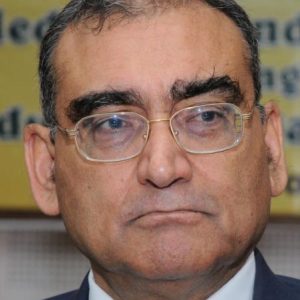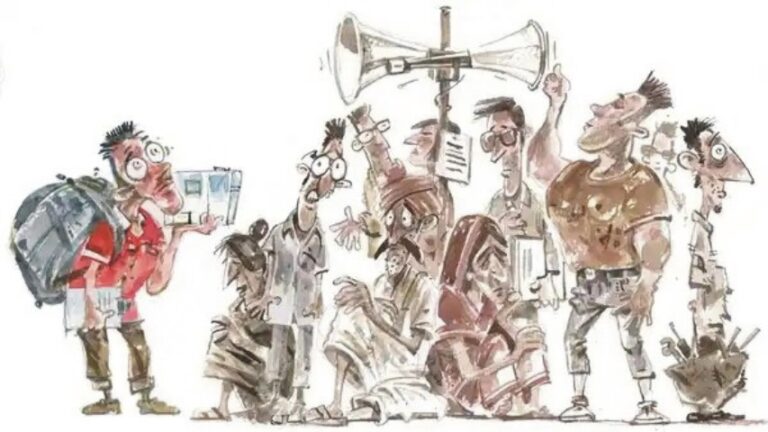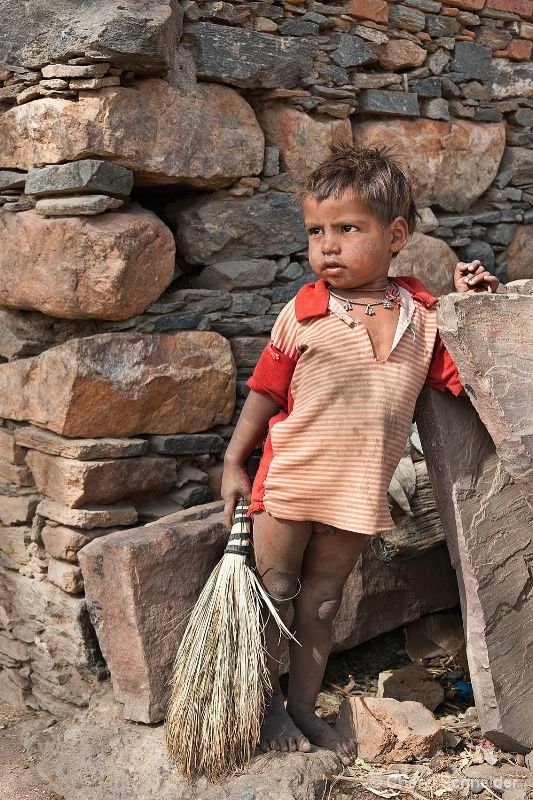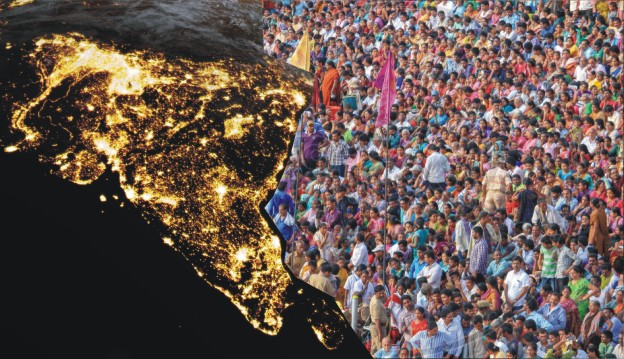

THE INDIAN PARLIAMENTARY elections have been announced, which will commence from 19th April this year, and will be in 7 phases, with the results to be announced on 4th June. In all probability the Hindu right wing BJP (Bhartiya Janta Party) will win a majority again, though the extent of victory cannot be predicted.
This is because in India elections are largely on the basis of religious and caste vote banks. 80% India is Hindu, and since the BJP claims to represent Hindus, this gives it a distinct advantage.
In elections parties must offer something positive to the people. The BJP offers Hindutva, the Hindu ideology (whatever its worth). On the other hand, the opposition has nothing positive to offer. Since 80% Indians are Hindus, this seems to make a BJP victory a foregone conclusion.

But this will not resolve the basic problems of India.
The basic problems of India are its massive poverty, record unemployment, appalling level of child malnutrition (every second child of India is malnourished, according to Global Hunger Index), skyrocketing prices of essential commodities like food, fuel and medicines, almost total lack of proper healthcare and good education for the masses, atrocities on minorities, etc.
A BJP victory will not alter this situation, and in fact may make it worse.
In my opinion these socio-economic problems cannot be resolved by elections, but only by a mighty, united people’s struggle led by modern minded leaders determined to create a political and social order under which the standard of living of the people rises rapidly and people get decent and just lives.
For this, reunification of India, Pakistan and Bangladesh under a secular government i.e. undoing of the Partition of India in 1947 is absolutely essential. Let me explain.
Partition of India was a British swindle on the basis of the bogus two nation theory (that Hindus and Muslims are two separate nations), and was in furtherance of the nefarious British divide and rule policy
 India, Pakistan, and Bangladesh are in fact one nation, sharing the same culture, and were one for over 500 years since the time of Moghul Emperor Akbar. By being divided we waste our precious resources and energy in hostility with each other, and thereby remain weak and poor.
India, Pakistan, and Bangladesh are in fact one nation, sharing the same culture, and were one for over 500 years since the time of Moghul Emperor Akbar. By being divided we waste our precious resources and energy in hostility with each other, and thereby remain weak and poor.
Since India was divided in 1947 on religious lines, and a separate Islamic state, Pakistan, was created, it was inevitable that the rest of India would one day become a Hindu state.
For several decades the fig leaf of secularism was maintained in India by the Congress party (with an eye on the large Muslim vote bank), but this could not last forever.
Ultimately in 2014 the Hindu BJP came to power, which won elections again in 2019, is poised to win the parliamentary elections again this year, and even in subsequent elections in the future.
Though still dejure a secular state, India has in reality been now transformed into a defacto Hindu state, its institutions ‘saffronised’, and its minorities oppressed in various ways.
Our national goal must be to rapidly modernise and industrialise India, and abolish the great socio-economic evils mentioned above, but this cannot be achieved under a government which does not have these as its priorities, but winning elections by building a Ram temple in Ayodhya, cow protection, and atrocities on minorities.
To solve India’s (and in India I include Pakistan and Bangladesh, since we are really one country) basic problems requires a mighty historical united people’s struggle led by modern minded leaders which will culminate in reunification of India and setting up of a political and social order under which India rapidly modernises and industrialises, and Indians get a high standard of living
 Historical experience shows that before an actual revolution there is always a long period of ideological revolution.
Historical experience shows that before an actual revolution there is always a long period of ideological revolution.
Thus, before the great French Revolution of 1789 (which destroyed feudalism in France) there was an ideological struggle for several decades by great thinkers and writers like Voltaire, Rousseau, Diderot, and the French Encyclopedists, who attacked feudalism, religious bigotry and superstitions in France, using not guns, bombs or swords but ideas as their weapons
India is presently passing through the period of ideological revolution, and the actual revolution to come is still far off. In this period, our patriotic secular enlightened section of society must do their duty to the country and combat feudal ideas and practices like casteism, communalism and superstitions, and think out ways and means of creating an alternative political and social order, in which our people enjoy decent and just lives.
To paraphrase Winston Churchill, let us therefore brace ourselves to our duty, and so bear ourselves, that if India lasts for a thousand years, men will still say ” This was their finest hour ”. ![]()
Main image courtesy: Jayachandran/Mint
__________
Also Read:
Hai, Modi kitna bura hai! (Agreed. But…)
Three New Criminal Laws – Some Flaws That Are Prone To Gross Misuse And Abuse
The effect of religious polarisation in India
Congress – Where is it heading?
Kejriwal and Hitler – The Striking Resemblances
A great judgment by the Indian Supreme Court
Shilanyas was a mistake, but Rajiv was not aware of unlocking Babri

Disclaimer : PunjabTodayTV.com and other platforms of the Punjab Today group strive to include views and opinions from across the entire spectrum, but by no means do we agree with everything we publish. Our efforts and editorial choices consistently underscore our authors’ right to the freedom of speech. However, it should be clear to all readers that individual authors are responsible for the information, ideas or opinions in their articles, and very often, these do not reflect the views of PunjabTodayTV.com or other platforms of the group. Punjab Today does not assume any responsibility or liability for the views of authors whose work appears here.
Punjab Today believes in serious, engaging, narrative journalism at a time when mainstream media houses seem to have given up on long-form writing and news television has blurred or altogether erased the lines between news and slapstick entertainment. We at Punjab Today believe that readers such as yourself appreciate cerebral journalism, and would like you to hold us against the best international industry standards. Brickbats are welcome even more than bouquets, though an occasional pat on the back is always encouraging. Good journalism can be a lifeline in these uncertain times worldwide. You can support us in myriad ways. To begin with, by spreading word about us and forwarding this reportage. Stay engaged.
— Team PT


Copyright © Punjab Today TV : All right Reserve 2016 - 2024 |